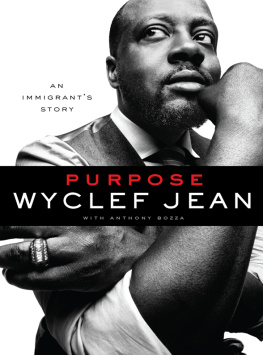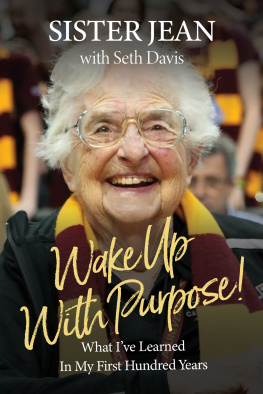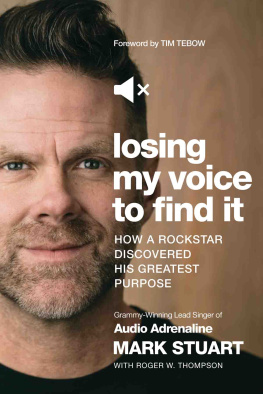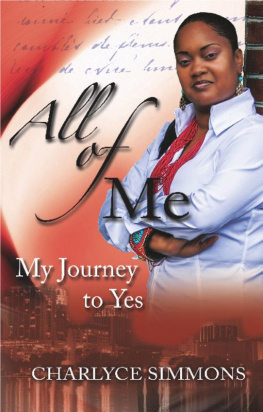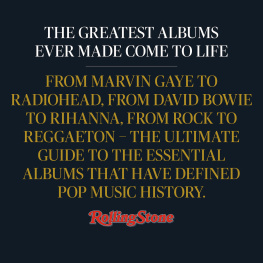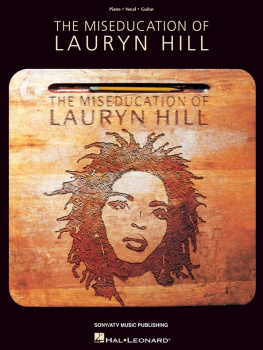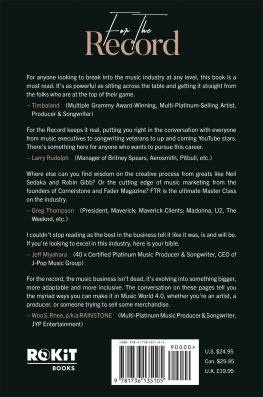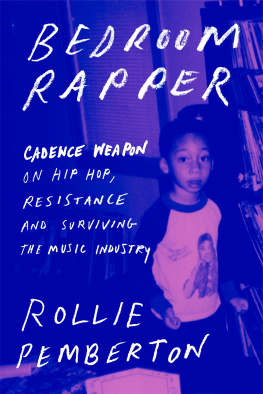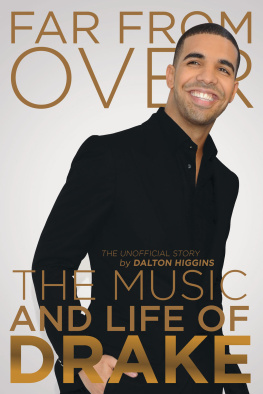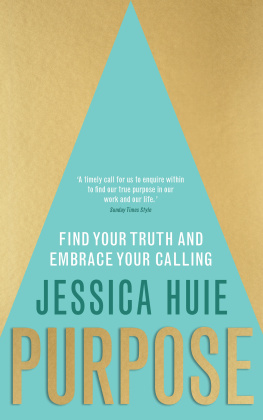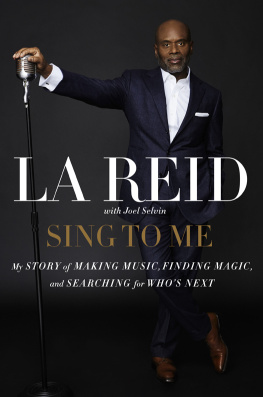
THIS BOOK IS DEDICATED TO THE CREATOR,
FOR WITHOUT MY CREATION,
NONE OF THIS WOULD HAVE EVER BEEN.
I DEDICATE MY BOOK TO MY MOTHER,
YOLANDA JEAN, AND MY FATHER,
THE LATE AND GREATLY MISSED GESNER JEAN.
MOST OF ALL, ID LIKE TO THANK
THE WOMAN THAT HAS STOOD BESIDE ME
SINCE I WAS NINETEEN YEARS OLD:
CLAUDINETTE JEAN, I WOULD NOT BE HERE WITHOUT
YOU OR OUR BEAUTIFUL DAUGHTER, ANGELINA.
CONTENTS
M y first thought was extraordinary: Look, theres my uncle Ray. Hes on TV. I stood at the control board in Studio A at Platinum Sounds, the recording studio Ive owned and made records in since 2000. Platinum is an institution founded on my success with the Fugees. Its a fitting legacy for a group that has sold over 15 million copies but released just one major-label album. The Score was recorded in a damp, smoke-filled basement on a tough stretch of Clinton Street in East Orange, New Jersey, on the only equipment we could afford, but nothing limited our soul and imagination. Platinum is a palace compared to that basement. I brought none of that old gear along, but the same spark of invention is there. Many hip-hop hits have been recorded thereby everyone from T.I. to DMX. Classic tracks by a true cross-section of artists have been laid down in those rooms, too: U2 did most of their last album there. Tom Jones has recorded there, and so has Patti LaBelle.
That evening, I was working on a song called Two Strangers in the Night. I dont come into the studio with anything more than a few lyrical ideas on paper usually, or melodies Ive recorded in voice mails that I leave for myself. I always have the song concept in mind, and then I let the raw spirit of the music and the moment guide me until it becomes what it is meant to be. I play piano, guitar, and can figure out any instrument with strings, so I always have too many options.
Two Strangers in the Night was bound for a mix tape called Toussaint St. Jean: From the Hut to the Projects to the Mansion. It never made it on there because the events of that evening changed everything, but it will see the light of day in some form or another soon. I like rapping as Toussaint St. Jean. He is an alias I created when I needed to get back to my street roots. Back when the Fugees released Blunted on Reality, raw street style was the only way I did it. I evolved from there on The Score, The Carnival, and my work since then. But the time Id been spending in Haiti with kids whose streets were tougher than any of those Id known brought me back in time and somewhere further. I needed the proper voice to tell those tales, and I didnt know how. So I created Toussaint. Hes a gritty gangster; he tells it like it is. Hes a revolutionary and a mercenary. I had some things to say about hip-hop and the world, and Toussaint was the man for the job.
Id had enough of the clownishness that had taken over the game. Hip-hop was an art form born of protest in the late seventies; it was the voice of the outsiders and the underprivileged in the South Bronx. They were hungry and they were struggling, but their spirit would not be held down. Hip-hop culture brought together break-dancing, rapping, DJs, Caribbean rhythms, and American rebellion. It grew. It became a commodity and an industry of its own years ago, but even at its worst, Id always found new voices worth listening to. There have always been legends in the game and young guns coming up with something to say. In 2009, though, I was no longer impressed. All I heard from the youth on the streets were soundtracks fit for strip clubs. Instead of raw humanity there were only synthesized voices, instead of real-life street tales, only insincere bragging. Toussaint needed to make a state-of-the-union address.
I couldnt hear Uncle Ray because the television was on mute. Uncle Ray looks good, man, I said aloud, more to myself than anyone else in the room. I do this a lot.
It wasnt unusual to see him on television being interviewed live in Washington, DC, because he lives there. My uncle, Raymond Joseph, is Haitis ambassador to the United States. He is my mothers brother and though I didnt know him much growing up, my perception of him was always that he was a serious man. My mother always reminded us that he had translated the Bible from English into Creole for publication. That is a serious undertaking. I got to know my uncle Raymond when I was in my late teens, when my dad and I were butting heads because of the music I was doing. My father called hip-hop of any kind bum music. He associated it with the drug dealers and criminals in our neighborhood who listened to it and never understood the possibility that the music could do more than just celebrate the lowlife. My uncle Raymond was brought in to talk to me, since my dad and I had stopped communicating altogether. I wasnt expecting him to see my side at all, but after Uncle Raymond talked to me and listened to my music, he went back to my dad and told him, This is America, Gesner. Your son isnt doing anything wrong. Hes just making music, which is keeping him off the streets. His music is not a bad thing. It didnt do much to change my dads mind but I never forgot my uncle Raymond for that. I thought it was really cool that he stood up for me the best he could.
I reached for the remote to turn the volume up, but my buzzing phone intercepted my attention.
The incoming text said, Weve been hit.
I looked back to the TV and saw the graphic in blazing red: 7.1 MAGNITUDE EARTHQUAKE IN HAITI. I turned up the volume.
Its getting dark there now, Uncle Ray was saying. Our phone contact has been severed. I was on the line with the president just a few minutes ago and I heard cries and people shouting. It was chaotic. Our concern is that night is falling and we dont know what will happen once it is dark. Now I noticed the deep lines of worry on his face.
I picked up the phone and called one of the most reliable members of my Yle team in Port-au-Prince. Miraculously he answered my call. There was noise on the line but I heard the fear in his voice loud and clear.
Whats goin on, man? I asked.
Weve been hit! I gotta find my kids. My kids are in school! My kids! My Then the phone went dead.
I am the kind of man who never sits still and I have always been this way. I had spent the last year musically working with the likes of T.I. and Estelle; Id done soundtrack work and was renegotiating my publishing contract with Sony in anticipation of the release of my next album. Id gotten my face on a Western Union cardthe first-ever celebrity to be offered thatand had seen my line of Yle Timberlands come out. Id spent most of my year politicking to make Yle a truly global relief effort. None of that mattered anymore: I knew what I had to do. I had to be in Haiti before the sun came up. I had to help any way I could, not as Wyclef Jean, but as a Haitian. I had to stand side-by-side with my countrymen and help save lives.
My cell phone vibrated again. I looked at my Twitter feed: Jimmy O, R.I.P.
Time stopped for me. I stared at the screen, ignoring the calls and texts that began to come in one after the other. This couldnt be truenot Jimmy O. He was one of my best Yle soldiers in Haiti and the toughest dude Ive ever known.
I met Jimmy O after President Jean-Bertrand Aristide was ousted in a coup dtat in 2004. I went down in 2005, and that is when I met him.
If you see the documentary Ghosts of Cit Soleil, you will understand who he was. The film is about an extremely impoverished community in Port-au-Prince that has no running water, electricity, health care, or stores of any kind. It is commonly regarded as one of the most dangerous and poorest areas in the Western Hemisphere and it is the biggest slum in the entire Northern Hemisphere. A human life there is less valuable than a meal. People do whatever they must do to survive and everything is controlled by ruthless gangs, most of them just kids. Jimmy O was one of them once upon a time.
Next page
